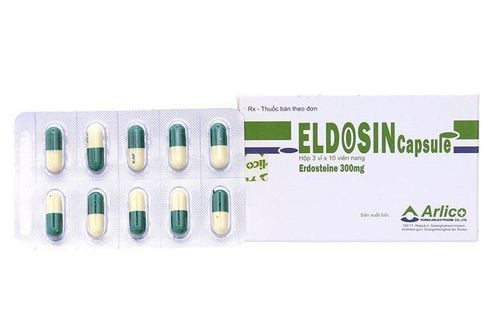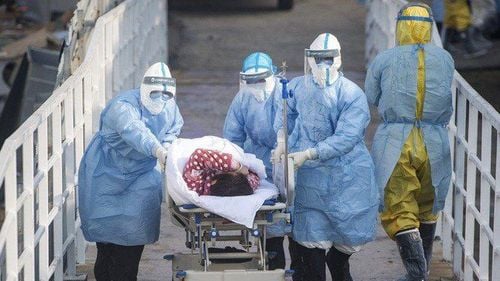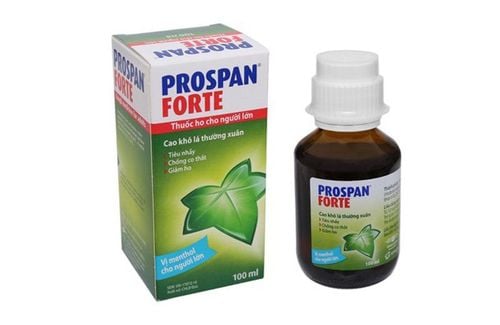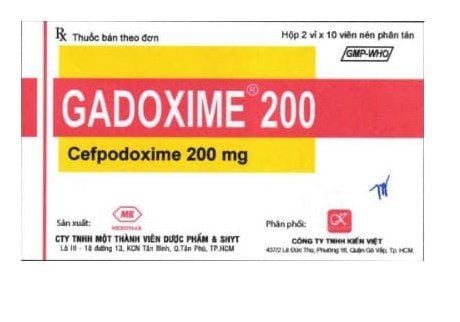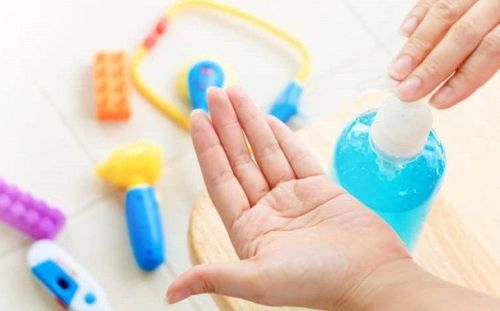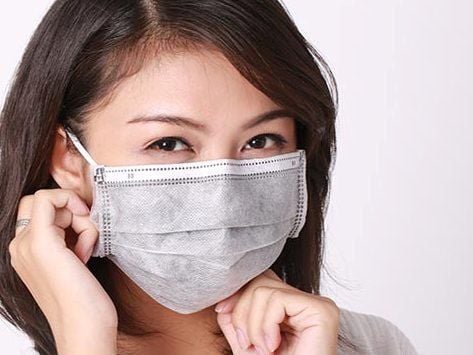This is an automatically translated article.
The article was translated and synthesized by Dr. Nguyen Xuan Hung - Director of Vinmec Institute of Applied Research and Regenerative Medicine (VIASRM) and consulted with Dr., Doctor Tran Thi Phuong Thuy - Department of General Internal Medicine. - Vinmec Times City International General Hospital.
You need to get tested for the possibility of infection with 2019-nCoV when you have symptoms such as: fever, cough, sore throat, difficulty breathing .. Or close contact with a person suspected of being infected with 2019-nCoV waiting for test results, who confirmed infection, person who came to China's epidemic area...within the previous 14 days.
To learn full information about the 2019 corona virus epidemic, you can refer to the sections of the document including:
[Q&A about the 2019 Corona virus] Part 1: Origin and mode of infection [Q&A about the 2019 Corona virus epidemic] Part 2: How to protect yourself against the epidemic? [Q&A about the 2019 Corona virus epidemic] Part 4: How does 2019-nCoV spread? Is it possible to get it from animals or pets?
1. When do I need to be tested for 2019-nCoV infection?
Have symptoms of acute respiratory infection (sudden onset of fever, cough, sore throat, or difficulty breathing) And within 14 days prior to the above symptoms you have traveled to China, OR had close contact with a suspected person 2019-nCoV infection is awaiting test results or confirmed infection. Recommended video:Test for new strain of Corona virus (2019-nCoV): Only 24 hours to get results
2. When you have the above symptoms, what should you do?
Consult a medical professional immediately. Call before you visit your doctor about your recent travel and symptoms. Self-isolate, avoid contact with others as much as possible. Do not travel while sick. Cover your mouth and nose with a tissue or your elbow (not your hand) when coughing or sneezing. Wash your hands often with soap and water for at least 20 seconds or with at least 60% alcohol-based hand sanitizer.

Khi xuất hiện triệu chứng bệnh, bạn nên gọi điện đến cơ sở y tế để được tư vấn
3. Which test is correct? Where do? How? Do asymptomatic people need to be tested? Do people in epidemic areas return without symptoms?
If you have a fever and symptoms of a respiratory illness, such as a cough or difficulty breathing, within 14 days of traveling from China or after being in close contact with a suspected person pending test results or who infected, call a healthcare professional and tell them about your travels or possible close contact. A medical professional will be the one to determine if you need to be tested for 2019-nCoV.
How to test for 2019-nCoV infection? Currently, testing for 2019-nCoV infection can only be conducted at authorized medical facilities. You need to consult a medical professional for an appointment for testing.
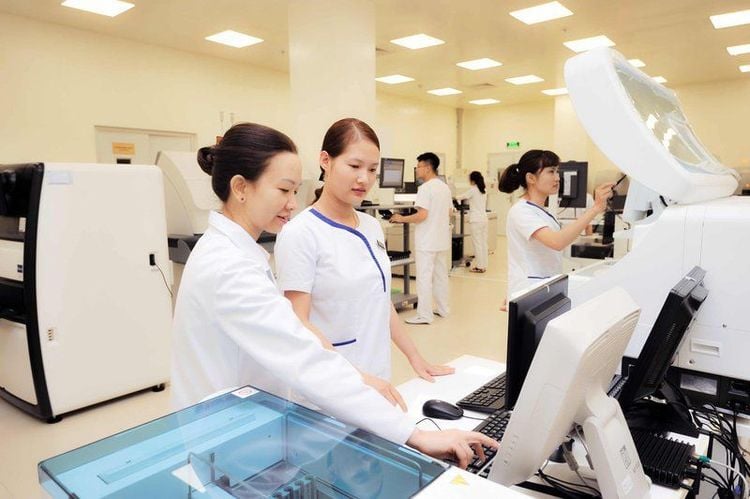
Xét nghiệm nhiễm 2019-nCoV cần được thực hiện tại bệnh viện có thẩm quyền
4. CDC recommendations on disinfecting and cleaning, taking care of suspected people at home
4.1 How is 2019-nCoV inactivated? To inactivate 2019-nCoV, the current recommendation is:
Wash with soap and water any skin and clothing surfaces suspected of being contaminated with respiratory droplets of a suspected infected person pending test results or infection. Skin and hands should be cleaned for at least 20 seconds with water and soap or alcohol-based hand sanitizer with a concentration of at least 60%.
CDC recommended disinfection guidelines:
Wipe down all high-touch surfaces, such as counters, countertops, doorknobs, bathroom fixtures, toilets, phones, tables keys, tablets and nightstands every day. In addition, clean any surfaces that may have blood, body fluids and/or secretions or secretions on them. Read the label of the cleaning product carefully and follow the recommendations on the product label. The label contains instructions for the product's effectiveness and efficiency including precautions for use, such as wearing gloves or an apron and ensuring good ventilation when using.
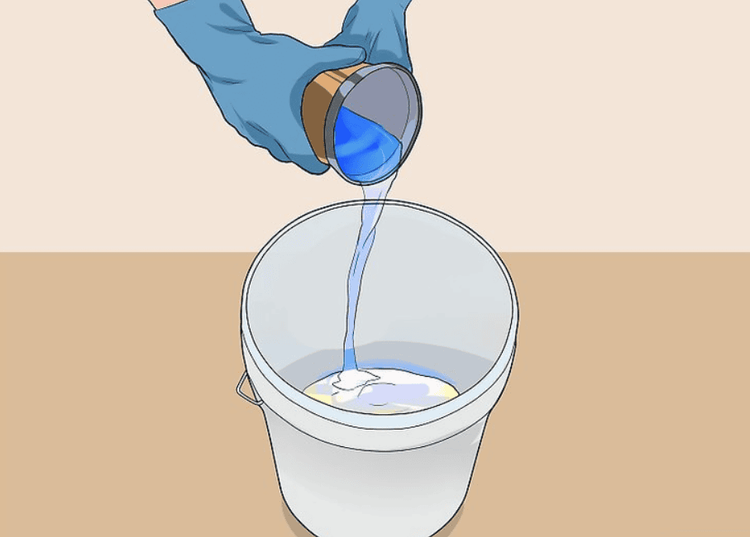
Lau sạch tất cả các bề mặt hay sờ vào bằng sản phẩm tẩy rửa và làm theo các khuyến cáo trên nhãn sản phẩm.
4.2 CDC recommends hygiene and care in case of a suspected person at home If you are living with or providing home care for suspected or confirmed 2019-nCoV infection (hereinafter collectively referred to as 2019-nCoV). are sick), you need to:
Make sure you understand and can help the sick person follow the medical staff's instructions. You need to help the sick with basic household needs and assist with getting groceries, prescriptions, and other personal needs. Only people who are absolutely essential to the care of the sick person should stay at home. Other family members should stay elsewhere. If this is not possible, they should stay in another room, or separate from the sick person as much as possible. Use a separate bathroom, if available. Limit non-essential visitors to the house. Keep elderly and immunocompromised or chronically ill people away from sick people.
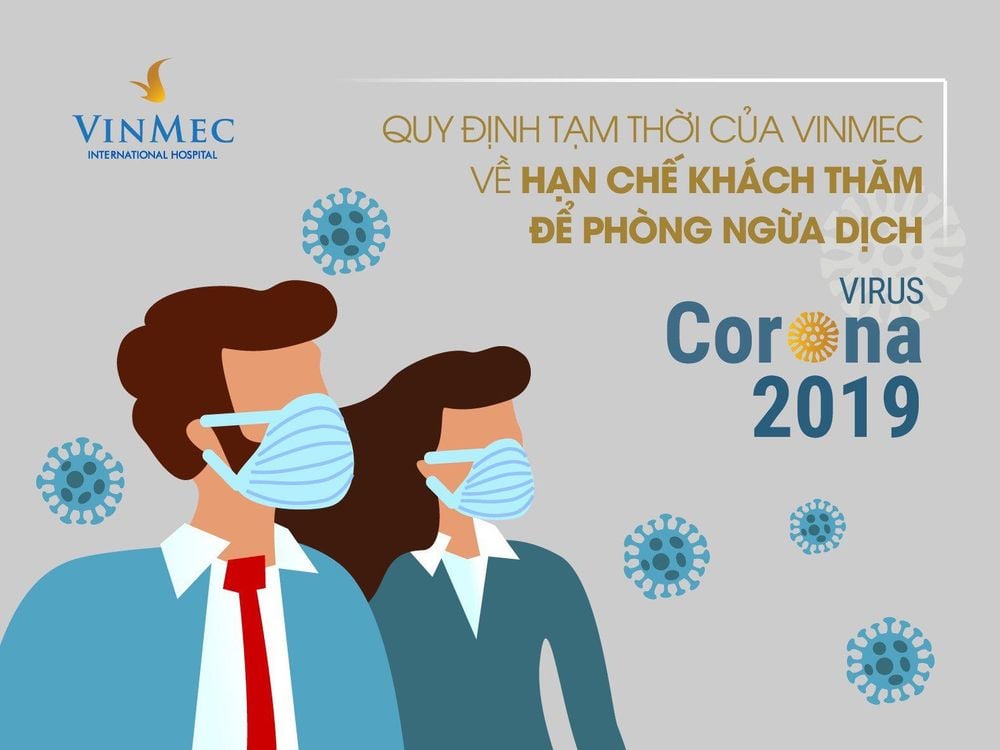
Cộng đồng cùng chung tay chống lại dịch bệnh do 2019-nCoV
Ensure good ventilation of common indoor spaces, for example with an air conditioner or open windows when weather conditions permit. Wash your hands often and thoroughly with soap and water for at least 20 seconds. If soap and water are not available, you can use an alcohol-based hand sanitizer with at least 60% alcohol content. Avoid touching your eyes, nose, and mouth with unwashed hands. Wear a mask, gown, and disposable gloves when you touch or come into contact with one of the following materials from an ill person: blood, body fluids, and/or secretions, such as sweat, saliva, sputum , nasal discharge, vomiting, urine or stools. Discard disposable masks, gowns and gloves after use. Reusable bran. Wash your hands immediately after removing the mask, gown, and gloves. Avoid sharing household items. You must not share dishes, drinking glasses, cups, eating utensils, towels, bedding, or other items with the sick person. After the sick person uses these items, you must wash/wash them thoroughly. Recommended video:
Sanitize hands properly - reduce the risk of corona virus infection 2019
Wipe down all high-touch surfaces, such as counters, countertops, doorknobs, bathroom fixtures, toilets, phones, keyboards, tablets, and nightstands, every day. In addition, clean any surfaces that may have blood, body fluids and/or secretions or secretions on them. Wash clothes thoroughly. Immediately collect and wash clothing or bedding that has blood, fluids and/or secretions or secretions on them. Wear disposable gloves while handling soiled items. Wash hands immediately after removing gloves. Read and follow the instructions on the labels of laundry detergents and bleaches. In general, wash and dry at the highest temperature indicated on the garment's label. Place all disposable gloves, gowns, masks and other dirty items in a plastic-lined container before disposing of them with other household waste. Wash your hands immediately after doing this. Monitor patient symptoms. If the patient gets worse, call the health facility to inform them that the person has or is suspected of being infected with 2019-nCoV. This will help the healthcare facility prepare in advance to avoid infecting others.

Theo dõi triệu chứng người bệnh kịp thời báo cáo cơ sở y tế
Caregivers and family members who do not follow precautions when in close contact with suspected or infected 2019-nCoV are considered “close contacts” and must be monitored for health . Follow the close contact precautions below. Discuss any questions with the appropriate medical facility
5. Epidemic situation and treatment capacity
5.1. The infection situation of 2019-nCoV in Hanoi, Vietnam and the world. As of the morning of February 7, 2020, worldwide, 639 people have died, and 1540 Chinese have recovered from 2019-nCoV infection. The number of recovered people has surpassed the number of deaths
Vietnam has no deaths, there are 12 patients confirmed to be infected with 2019-nCoV and 3 patients have recovered after infection.
5.2 Is there any specific treatment or vaccine for the disease? There is currently no specific treatment or vaccine for 2019-nCoV. However, people infected with 2019-nCOV need appropriate care to relieve and treat symptoms, and severe cases require intensive care. Several specific treatments are currently being researched and clinically tested. WHO is supporting and coordinating the drug development efforts for nCoV with various research centers and pharmaceutical companies.
If you want to protect yourself from 2019-nCoV infection, it is important to maintain hand and respiratory hygiene, eat and handle food safely, and avoid close contact with anyone with respiratory symptoms such as: cough and runny nose.
The following measures are NOT recommended for the treatment of 2019-nCoV because they have no practical effect and can even be harmful:
Take vitamin C Smoking Drink herbal teas Wear layers of masks to increase increased protection Self-medication like antibiotics In any case, when you have a fever, cough and difficulty breathing, seek medical attention quickly to reduce the risk of disease progression and it is essential to tell your healthcare provider if you been to China.
Source: CDC, WHO, ECDC
MORE:
[Q&A about the 2019 Corona virus] Part 1: Origin and mode of infection [Q&A about the 2019 Corona virus epidemic] Part 2: How to Protect yourself against disease? [Q&A about the 2019 Corona virus epidemic] Part 4: How does 2019-nCoV spread? Is it possible to get it from animals or pets? Vinmec's advice and hotline to receive customer advice on the 2019 Corona virus epidemic





